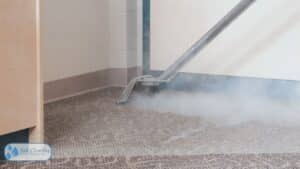Energy efficiency in buildings is a crucial aspect of sustainable living. As the world becomes more aware of the environmental impact of energy consumption, it is essential to find ways to reduce energy usage and minimise carbon emissions. Buildings are responsible for a significant portion of energy consumption, and improving their energy efficiency can have a substantial impact on reducing greenhouse gas emissions.
Windows play a vital role in the energy efficiency of buildings. They are not only an essential architectural element but also serve as a barrier between the interior and exterior environments. The type of windows used, their insulation properties, and their maintenance can significantly affect the energy efficiency of a building.
The Role of Windows in Energy Efficiency
Windows have a significant impact on the energy efficiency of buildings. They can either contribute to heat gain or loss, depending on their insulation properties. In colder climates, windows with good insulation can prevent heat from escaping the building, reducing the need for heating systems and saving energy. In warmer climates, windows with proper insulation can prevent heat from entering the building, reducing the need for air conditioning and saving energy.
Different types of windows have different energy efficiency ratings. Single-pane windows are the least energy-efficient, as they provide minimal insulation. Double-pane windows have two layers of glass with an insulating layer in between, providing better insulation than single-pane windows. Triple-pane windows have three layers of glass with two insulating layers, offering even better insulation than double-pane windows.
The Benefits of Regular Window Cleaning
Regular window cleaning offers several benefits beyond aesthetics. Clean windows allow more natural light to enter the building, reducing the need for artificial lighting during the day. This not only saves energy but also improves the overall well-being and productivity of occupants.
Clean windows also improve the view from inside the building, creating a more pleasant and inviting environment. This can have a positive impact on occupants’ mood and mental health. Additionally, clean windows can enhance the curb appeal of a building, making it more attractive to potential tenants or buyers.
How Dirty Windows Affect Energy Efficiency
Dirty windows can have a negative impact on the energy efficiency of buildings. When windows are covered in dirt, dust, or grime, they reduce the amount of natural light that enters the building. This forces occupants to rely more on artificial lighting, increasing energy consumption.
Furthermore, dirty windows can obstruct the view from inside the building. This can lead to a decrease in natural light and a decrease in occupant comfort. Occupants may feel the need to close blinds or curtains to block the view of dirty windows, further reducing natural light and increasing reliance on artificial lighting.
The Science Behind Streak-Free Windows
Streak-free windows are not only aesthetically pleasing but also contribute to energy efficiency. Streaks on windows can obstruct the passage of light, reducing the amount of natural light that enters the building. This can lead to increased energy consumption for artificial lighting.
The science behind streak-free windows lies in the proper cleaning techniques and products used. Streaks on windows are often caused by residue left behind by cleaning products or improper cleaning techniques. Using the right cleaning products and techniques can help ensure streak-free windows.

The Best Cleaning Methods for Energy Efficiency
To achieve streak-free windows and maintain energy efficiency, it is essential to use the right cleaning methods. Start by removing any loose dirt or debris from the window surface using a soft brush or cloth. Then, apply a window cleaning solution using a spray bottle or sponge.
When cleaning the window, use a squeegee to remove the cleaning solution and dirt from the glass. Start at the top of the window and work your way down in a vertical motion. Wipe off any excess water with a lint-free cloth or microfiber towel.
It is important to avoid using abrasive materials or harsh chemicals when cleaning windows, as they can damage the glass or window frames. Instead, opt for eco-friendly cleaning products that are safe for both the environment and the windows.
The Importance of Using Eco-Friendly Cleaning Products
Using eco-friendly cleaning products is not only beneficial for the environment but also for energy efficiency. Traditional cleaning products often contain harmful chemicals that can be detrimental to both human health and the environment. These chemicals can contribute to indoor air pollution and have a negative impact on energy efficiency.
Eco-friendly cleaning products, on the other hand, are made from natural ingredients that are safe for both humans and the environment. They do not release harmful fumes or residues that can affect indoor air quality. By using eco-friendly cleaning products, you can maintain a healthy indoor environment while also promoting energy efficiency.
How Professional Window Cleaners Can Help Improve Energy Efficiency
Hiring a professional window cleaning service can be beneficial for improving energy efficiency in buildings. Professional window cleaners have the expertise and equipment to clean windows effectively and efficiently. They can ensure streak-free windows and remove any dirt or grime that may be obstructing natural light.
Professional window cleaners also have access to specialised cleaning products that are specifically designed for windows. These products are often more effective at removing dirt and grime without leaving streaks or residue behind. By hiring professionals, you can ensure that your windows are properly cleaned and maintained for optimal energy efficiency.
Other Ways to Improve Energy Efficiency in Buildings
While regular window cleaning is essential for energy efficiency, there are other ways to improve the overall energy efficiency of buildings. Proper insulation is crucial for preventing heat gain or loss through windows and walls. Adding insulation to windows or using window films can further enhance their energy efficiency.
Lighting also plays a significant role in energy consumption. Switching to energy-efficient light bulbs, such as LED bulbs, can significantly reduce energy usage. Additionally, optimising the use of natural light by incorporating skylights or light tubes can further reduce the need for artificial lighting.
HVAC systems are another major contributor to energy consumption in buildings. Regular maintenance and proper insulation of HVAC systems can improve their efficiency and reduce energy usage. Upgrading to energy-efficient HVAC systems or using smart thermostats can also help optimise energy consumption.
The Bottom Line on Window Cleaning and Energy Efficiency
In conclusion, energy efficiency in buildings is crucial for reducing carbon emissions and promoting sustainable living. Windows play a significant role in the energy efficiency of buildings, and their maintenance is essential for optimal performance.
Regular window cleaning not only improves aesthetics but also enhances energy efficiency. Clean windows allow more natural light to enter the building, reducing the need for artificial lighting. Streak-free windows are particularly important, as streaks can obstruct the passage of light and increase energy consumption.
Using eco-friendly cleaning products and hiring professional window cleaners can further enhance energy efficiency. Additionally, implementing other energy-efficient measures such as proper insulation, lighting optimization, and HVAC system maintenance can contribute to overall energy savings in buildings. By prioritising energy efficiency and regular window cleaning, we can create more sustainable and environmentally friendly buildings.
If you’re interested in improving the cleanliness and energy efficiency of your home, you may also want to check out this informative article on the significance of professional carpet cleaning. Professional carpet cleaning not only removes dirt and stains but also eliminates allergens and improves indoor air quality.
FAQs
What is energy efficiency?
Energy efficiency refers to the process of using less energy to perform the same task. It involves reducing energy waste and improving energy performance.
How can window cleaning improve energy efficiency?
Window cleaning can improve energy efficiency by allowing more natural light to enter a building, reducing the need for artificial lighting. Clean windows also allow for better insulation, reducing the amount of heat lost through windows.
What are the benefits of improving energy efficiency?
Improving energy efficiency can lead to lower energy bills, reduced carbon emissions, and a more comfortable living or working environment. It can also help to conserve natural resources and reduce the impact of energy production on the environment.
What are some other ways to improve energy efficiency?
Other ways to improve energy efficiency include using energy-efficient appliances, insulating buildings, using renewable energy sources, and reducing energy waste through behaviour changes such as turning off lights and unplugging electronics when not in use.
Is window cleaning necessary for energy efficiency?
While window cleaning is not the only way to improve energy efficiency, it can be a helpful step in reducing energy waste and improving insulation. However, other factors such as the quality of windows and the level of insulation in a building also play a significant role in energy efficiency.




